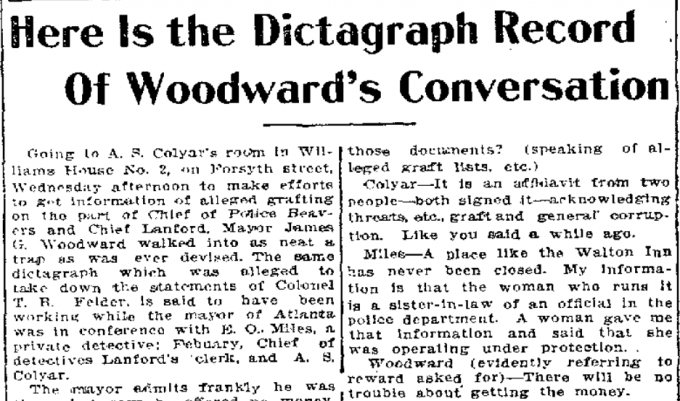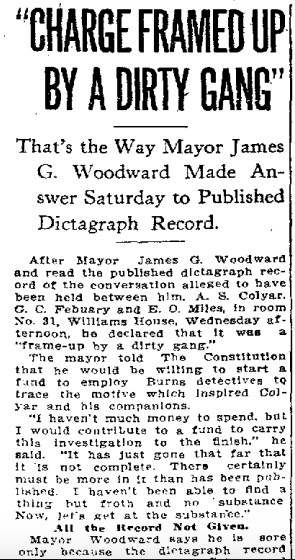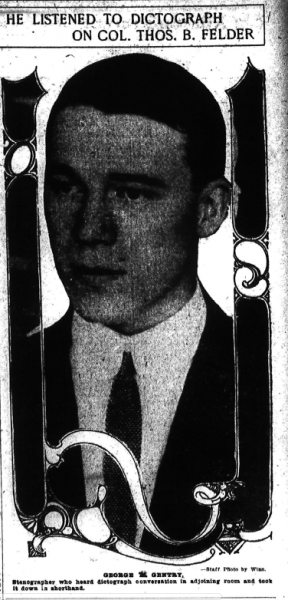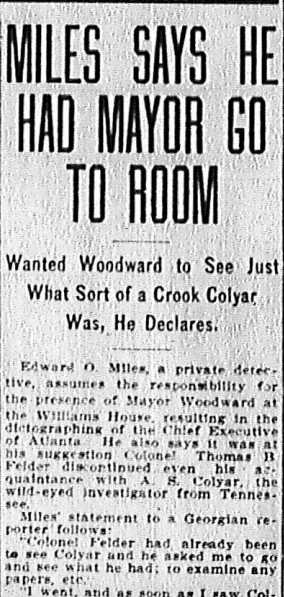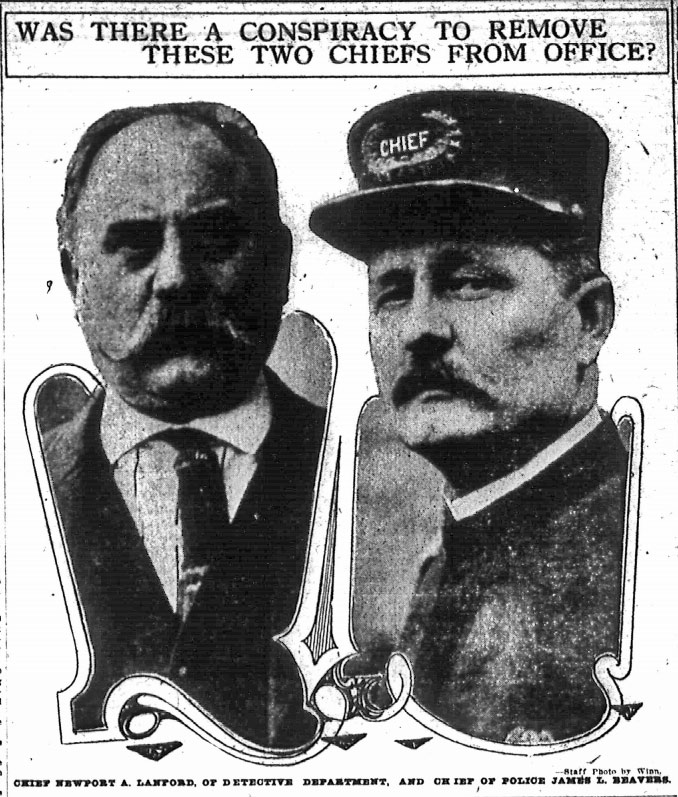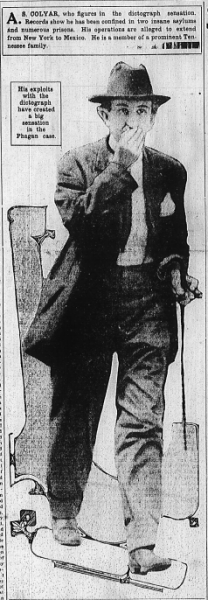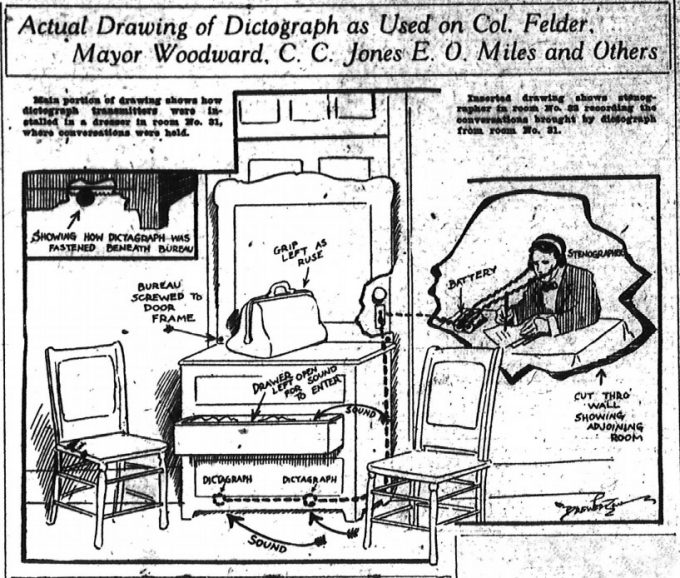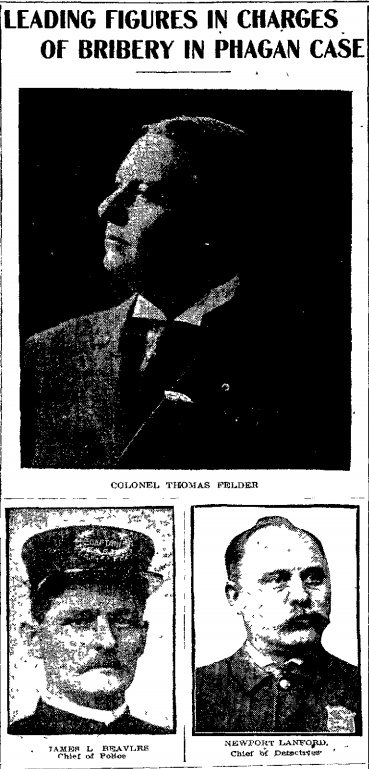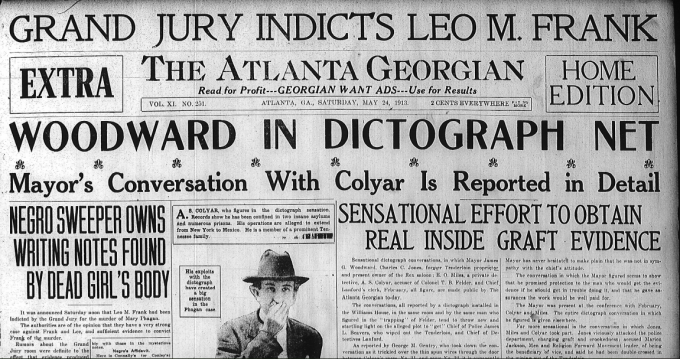 Another in our series of new transcriptions of contemporary articles on the Leo Frank case.
Another in our series of new transcriptions of contemporary articles on the Leo Frank case.
The Atlanta Journal
Sunday, June 15, 1913
“Upon Reading My Notes Before the Court It Will Be Proven That There Is Enough of It There to Justify What Was Written and Sworn to be Me as Being Practically the Gist of What Was Said,” Says Young Stenographer of Dictograph Records Transcribed by Him
“I WAS ALLOWED TO READ PROOF OF WHAT WAS PUBLISHED ABOUT FELDER CONFERENCE,” HE SAYS
“As Far as What The Journal Published, Will Say, as Far as I Can Remember, What They Printed Were the Facts In a General Way, and the Changes Were Immaterial.” Located by The Jounaal’s [sic] Washington Correspondent, Gentry Talks Freely.
By Ralph Smith
WASHINGTON, D. C., June 14.—Living under an assumed name and holding a lucrative position as an expert stenographer, George M. Gentry, of Atlanta, who made the famous dictograph notes, was located in Washington today by the Journal correspondent. He has been here since May 27. He left Atlanta via the Southern railway on the evening of May 26, following the Felder exposure. He claims to have seen no one from Atlanta other than E. O. Miles, and The Journal correspondent, though he is in communication with the members of his immediate family.
Gentry’s real identity is unknown to his employers, and at his request his present address and the place of his employment are withheld by the correspondent. Their publication, he believes, might cause him unnecessary annoyance.
“I left Atlanta because I feared that I might be arrested for perjury,” he said.
Gentry today voluntarily made an affidavit, elaborating and elucidating the statements contained in the affidavit he recently gave to E. O. Miles. This affidavit, made today, was sworn to and subscribed before Isaac Heidenheimer, of 1226 Pennsylvania avenue, notary public, for the District of Columbia. It was witnessed by Senator William Hughes, of New Jersey and Congressman Frank Doremus, of Michigan.
The original and a carbon copy are in the possession of The Journal correspondent, and Gentry himself has a copy. The affidavit was written by Gentry, without suggestion or dictation from anyone.
“Unfortunately I did not go into enough detail in my previous affidavit, hence the necessity of making a further one,” swore Gentry today.
Continuing the affidavit says, “I neglected to mention in same (the Miles affidavit) that I was allowed to read a proof of what The Journal published, in connection with the Felder conference. This conference was transcribed first and printed in Friday’s issue of the Journal. The other conferences, all of which were held Wednesday afternoon and evening, preceding the date of publication, were not published until after the Felder conference was published. I made one or two changes in the proof of the Felder conference, this being the only proof I was allowed to see. As I remember in one instance, I had written the word “intrude” any my notes contained the word “intruding.”
“Further than this I do not remember of any change that I made in same, with the exception of ordinary corrections, such as marking misspelled words, adding periods and commas, and striking them out.” Continue Reading →

 Another in
Another in 
